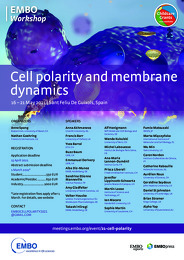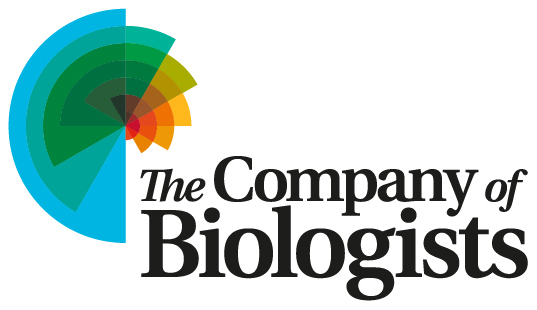About the Workshop
Cell polarity pathways play fundamental roles in defining the function, architecture, and fate of cells and in turn the generation and homeostatic control of multicellular tissues. Critically, mutations in polarity and membrane trafficking are common in cancer and other diseases, yet mechanisms remain poorly understood. As central architects of cell morphology, polarity pathways shape and in turn are shaped by the cell’s cytoskeletal and membrane networks. This EMBO Workshop will explore this intersection between polarity, cytoskeleton and cellular membrane networks in the context of polarized cells and tissues. It will bring together researchers from around the globe and across career stages to identify and highlight new principles of cellular organization and how these concepts impact our understanding of the role of polarity and membrane dynamics in human development and disease. This EMBO Workshop will be organized around core topics that represent the next frontier in our understanding of polarizing systems: spatiotemporal control of cell fate, principles of self-organizing networks, shaping and deploying dynamic membrane networks, integration of chemical and physical cues, coordinating polarity and membrane systems during multicellular development, and the implementation of cutting edge technology to reveal new principles in membrane organization.
Important notice: Due to ongoing restrictions on travel and large gatherings, the meeting will move to an online format. Please note the programme and registration changes. We have re-imagined the programme to focus on opportunities for networking, discussion and feedback.
Key changes: (1) The meeting will center around topic-focussed discussion sessions. (2) All talks except keynotes will be pre-recorded to enable the live sessions to focus on discussion. (3) Instead of posters, presenters will pre-record short talks and present in parallel small group discussions during the meeting.
About EMBO Courses and Workshops
EMBO Courses and Workshops are selected for their excellent scientific quality and timelines, provision of good networking activities for all participants and speaker gender diversity (at least 40% of speakers must be from the underrepresented gender).
Organisers are encouraged to implement measures to make the meeting environmentally more sustainable.





